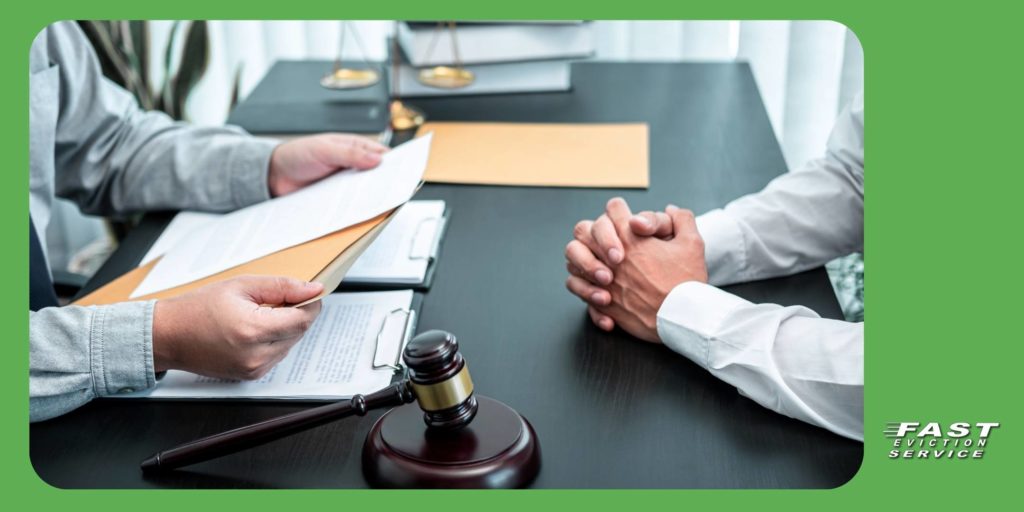You are represented at all times by one of our California Eviction Attorneys | 1-800-686-8686 | intake@fastevict.com | Se habla español
How to Avoid Security Deposit Disputes in California
Updated 01/07/25
Handling security deposits is one of the most challenging aspects of being a landlord in California. While late rent payments often top the list of landlord-tenant issues, security deposit disputes come in a close second. These disagreements often stem from differing perceptions of how deposits should be used and refunded. This article will provide California landlords with actionable tips to help avoid these conflicts and ensure smoother transitions between tenants.

In this article:
- Understanding California’s Security Deposit Laws
- Drafting a Comprehensive Rental Agreement
- Conducting Routine Property Inspections
- Documenting Property Condition
- Handling the Move-Out Process Properly
- Communicating Clearly with Tenants
- Frequently Asked Questions
Understanding California’s Security Deposit Laws
California has strict guidelines for security deposits that every landlord should know. For example, you can charge up to two times the monthly rent for an unfurnished property and three times for a furnished one. For commercial properties, there’s no limit on deposit amounts. Once a tenant moves out, landlords have 21 days to return the deposit or provide an itemized list of deductions along with supporting receipts or invoices.
These regulations are designed to protect both parties and minimize disputes. Regularly reviewing California’s security deposit laws can help landlords avoid missteps that lead to legal action. Bookmark the official guidelines and refresh your knowledge periodically.
Drafting a Comprehensive Rental Agreement
A well-crafted rental agreement is one of the most effective tools for avoiding security deposit disputes. This document should clearly outline the terms surrounding the deposit, including:
- The exact amount collected
- What constitutes “normal wear and tear”
- Permissible uses of the deposit (e.g., unpaid rent, damage repairs, cleaning)
- The timeline and process for returning the deposit
Hiring a landlord attorney to draft or review your lease is a worthwhile investment. A thorough and legally sound agreement can save you significant time and money in the long run.
Conducting Routine Property Inspections
Regular property inspections not only help maintain the condition of your rental but also set clear expectations for tenants. By inspecting your property at least twice a year, you can identify potential issues early and address them before they become significant problems.
Include an inspection clause in your lease agreement to notify tenants about your intentions. While you don’t need to frame these inspections as a way to prevent disputes, the practice encourages tenants to take better care of the property. Promptly addressing maintenance requests during these visits also fosters goodwill and reduces the likelihood of conflict.
Documenting Property Condition
Accurate documentation is essential for avoiding disputes over the state of the property. Implementing move-in and move-out checklists can provide clarity and transparency. During the move-in walkthrough, record the property’s condition in detail, noting any existing damage or areas of concern. Take timestamped photos or videos as evidence.
When the tenant moves out, conduct another walkthrough using the original checklist for comparison. This ensures both parties have a clear understanding of any changes to the property’s condition. Provide a copy of the checklist to the tenant and keep one for your records.
Handling the Move-Out Process Properly
The move-out process is a critical moment for avoiding security deposit disputes. Before the tenant vacates, send them a reminder about their responsibilities for cleaning and restoring the property to its original condition (minus normal wear and tear). Offering a pre-move-out inspection can also give tenants a chance to address any issues proactively.
Once the tenant moves out, you have 21 days to return the deposit or provide an itemized list of deductions. Ensure that your deductions are reasonable and well-documented. For example, if you’re deducting for cleaning, include receipts showing the actual cost. Transparency during this process builds trust and minimizes the chance of disputes.
Communicating Clearly with Tenants
Clear and consistent communication is the foundation of a positive landlord-tenant relationship. From the outset, explain your expectations regarding the care and maintenance of the property. When discussing the security deposit, provide tenants with written guidelines on how to maximize their refund, such as cleaning tips and instructions for reporting damage.
If a dispute arises, remain calm and professional. Listen to the tenant’s concerns and present your evidence, such as the move-in checklist or receipts for repairs. Most conflicts can be resolved through open dialogue and mutual understanding.
Frequently Asked Questions
How long does a tenant have to dispute a security deposit in California? Tenants typically have up to four years to dispute a security deposit deduction under California’s statute of limitations for written contracts. However, addressing concerns promptly can prevent escalation.
What is considered “normal wear and tear” in California? Normal wear and tear refers to the natural deterioration of a property over time due to regular use, such as faded paint or worn carpets. Damage beyond this, like holes in walls or broken appliances, can be deducted from the deposit.
Can a landlord charge for cleaning after a tenant moves out? Yes, but only to return the property to its original state at move-in. Landlords cannot charge for routine cleaning that falls under normal wear and tear.
By following these tips and staying informed about California’s security deposit laws, landlords can significantly reduce the likelihood of disputes. Proactive communication, thorough documentation, and a solid lease agreement are your best tools for maintaining positive relationships with tenants and protecting your property.






